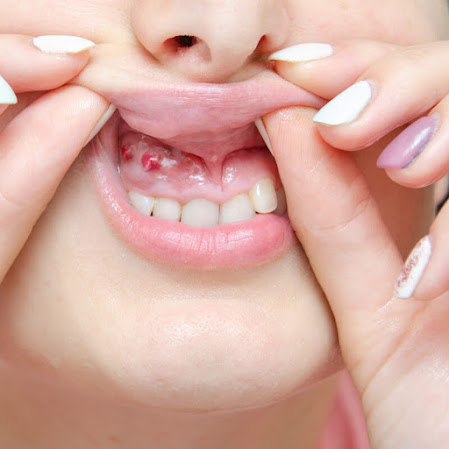Aphthous Ulcers- Symptoms, Causes, Treatment and Prevention

Aphthous Ulcers (also known as aphthous stomatitis, canker sores), are a common and painful problem and can make eating and talking difficult. . An aphthous ulcer is an ulcer that forms on the mucous membranes (on the soft tissues in your mouth or at the base of your gums) -- like on the inside of the lips and cheeks or below the tongue. Aphthous Ulcers are benign in nature, non-contagious and can occur as single ulcers or in clusters. Recurrent aphthous ulcers do not create much of a concern and go away on their own in a week or two, but at times, they could be associated with significant health problems. Aphthous ulcers that occur in conjunction with symptoms of genital ulcerations, uveitis, arthritis, conjunctivitis, fever should be brought to your doctor’s attention at the earliest as this will prompt a search for any cause or origin of this condition. What causes an Aphthous ulcer? The exact reason why aphthous ulcer develops is not yet known. What most researchers and ...

